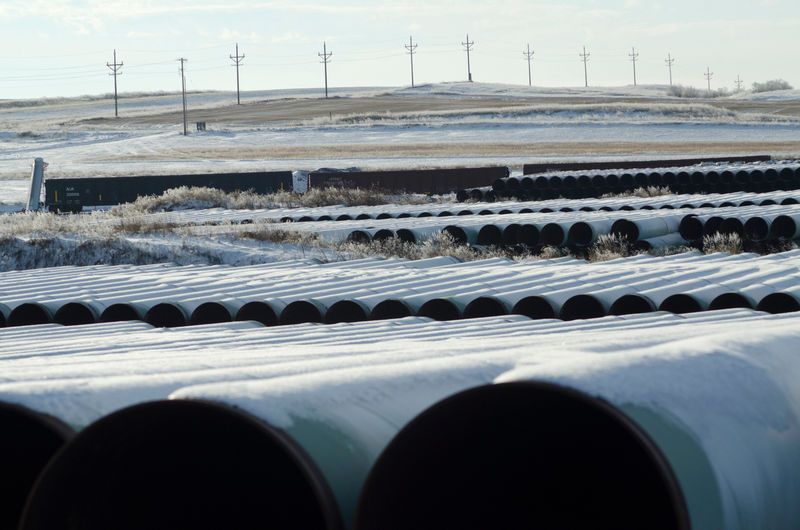(Adds comment from TransCanada, industry and Greenpeace)
By Ethan Lou
CALGARY, Alberta, Aug 23 (Reuters) - The review of TransCanada Corp 's TRP.TO proposed Energy East pipeline will consider its indirect greenhouse gas contributions, Canada's National Energy Board (NEB) regulator said on Wednesday, expanding the scope of the assessment.
In determining whether the pipeline is in the public's interest, the NEB will weigh the emissions from extracting and refining the oil shipped on the pipeline, the regulator said.
Energy East, which would take crude from Alberta to the Atlantic coast, would attain higher prices for Canadian producers whose landlocked product trades at a discount to the West Texas Intermediate benchmark.
However, Energy East's importance has somewhat diminished for TransCanada since U.S. President Donald Trump this year signed an order reviving the company's Keystone XL pipeline, which would run from Alberta's oil sands to U.S. refineries.
Considering Energy East's associated emissions makes the upcoming regulatory review for the pipeline more onerous and had been opposed by TransCanada, which had called it "completely redundant and unnecessary."
The company said on Wednesday it will review the NEB's announcement to "understand the potential impacts on the project."
The NEB said also the assessment of the pipeline will provide "more visibility" to the evaluation of risks associated with accidents such as oil spills. The NEB did not say when the review will begin.
The Canadian Energy Pipeline Association industry lobby group said it does not support the NEB's decision to consider indirect emissions because the government already deals with them on other fronts.
The environmental group Greenpeace said it is still unclear what impact the NEB's expanded scope will have on Energy East's fate.
The review needs to be put on hold until the government's bid to reform the regulator is complete, Keith Stewart, Greenpeace's senior energy strategist, said in an email.
The NEB has been accused of being too close to the industry, and Canada's Liberal government has said it wants a new entity to assess energy infrastructure projects by 2018. NEB this year ordered Energy East's review to start again from the beginning, voiding all decisions from the project's previous examining panel that has been accused of bias. panel has 21 months to complete its review. After that, the federal government has another six months to decide whether the pipeline can be built.
Last year, the review stalled amid protests by environmentalists and after revelations that review panel members met privately with a TransCanada consultant.
